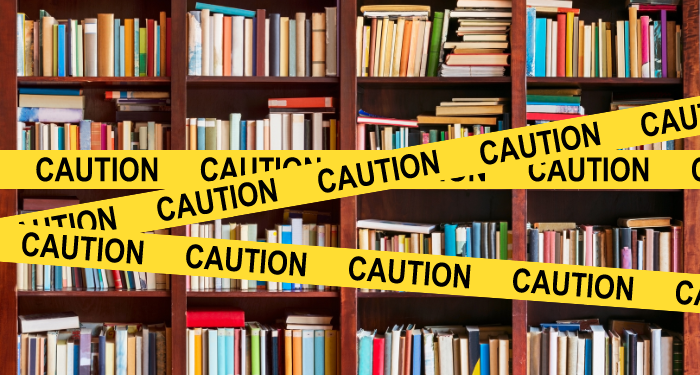Products You May Like
Last legislative session, a bill to create a rating system for all books in Oklahoma schools found itself in a legal mess with the Motion Picture Association. But a new bill and a new proposed book rating system has just passed committee and is one step closer to being implemented across the state.
Senate Bill 397, proposed by State Senator Warren Hamilton (Republican), was given an emergency status and passed the Senate chamber. The bill, which has a high likelihood of passing the House and landing on the governor’s desk, would require every school library collection throughout the state to conduct an inventory and rate each title on their newly created scale. The scale is as follows:
- Elementary
- Junior High
- Under 16
- Juniors and Seniors
Schools serving those 5th grade and younger would be unable to have any books rated above elementary, and middle schools could not include books rated above elementary or junior high. In other words, even literary classics–which have not been the primary target of book bans in the state or country over the last 18 months–would not be allowed in middle school libraries.
The bill further articulates that no public or charter school and no public library would be allowed to include print or nonprint material “that the average person age eighteen (18) or older applying contemporary community standards would find has a predominant tendency to appeal to a prurient interest in sex,” starting in July 2024.
It also lays out where books given the “juniors and seniors” rating can exist within the library–and it’s not on publicly accessible shelves:
The bill directs public libraries beginning July 1, 2024 to place the materials and media designated “juniors and seniors” in a section of the library only accessible to staff, and such material and media are only accessible to an individual under the age of 18 with written consent from a parent or legal guardian.
Hamilton, the bill’s writer, said that the three-prong Miller test would remain the standard for determining obscenity…but also said the following, “[I]f you can’t air it on the 10 o’clock news because the FCC has deemed it obscene, then clearly it doesn’t need to be in the public-school library.”
That is not how the Miller Test works.
State Senator Adam Pugh (Republican) claims this is not a book banning bill and that indeed, this bill will help “create a set of standards that is appropriate, school by school, grade by grade, and include parents in that process.”
Whose standards remains to be seen, given that the Republican senators from the state do not understand the simple test for obscenity.
Senator Jo Anna Dossett (Democrat) brings skepticism to the “good faith” those implementing this bill and the law on the local level would utilize. “On ‘good faith’ each of these entities is going to conduct the inventory, and then on good faith the designations are going to be applied, is that right?”
Democratic Senator Carrie Hicks also raised questions about implementation and the standards by which these ratings would be applied. She rightly worries that such a system would outlaw biology books in both schools and, in 2024, public libraries. Hamilton cited the example out of Stillwater, Oklahoma, where parents who complained about books saw that the news could not even air the segments to which they objected.
The books he refers to include several young adult novels, none of which fall under the designation of “obscenity.” Moreover, the answer is a purposeful evasion of Hicks’s question, as no book in the Stillwater case was a textbook nor even nonfiction.
While it is positive that the ratings system being pushed through in Oklahoma is not the one created by right-wing Moms for Liberty and No Left Turn/Laverna in the Library groups–members of which have little or no professional background in education, child development, literacy, or library processes and procedures but instead created a system to count swear words and sex acts based on their own prurient interests–it is the model. Moreover, Oklahoma’s passage of this through the Senate Education Committee is deeply concerning for how such ratings systems will be rammed through other state legislative sessions. Right now, over a dozen state bills directly target books in school and public libraries, many of which will punish professionals for having materials the state deems “inappropriate.”
Meanwhile in one Wyoming county, a school district proposed this week to implement the right-wing biased ratings system to weed their schools of “pornographic” material. The growth of local and state level policies and laws to rate books will and does create a chilling effect, encouraging the ongoing quiet censorship by professionals in the field. Book rating systems do not work, opt-out policies created to give parental control over the books their students have access to are extremely unpopular, and students and professionals face the long-lasting impact of trauma over the legislation of identities, facts, and history. This is a tremendous waste of taxpayer money and a dangerous precedent over who or what qualifies one to determine “appropriate” content.
If you’re in Oklahoma, it is beyond time to write to your state Congress and demand this bill be rejected.
